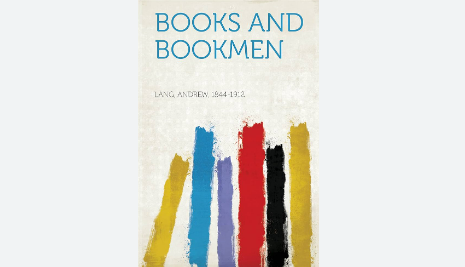Some Japanese Bogie-Books
bySome Japanese Bogie-Books stand as eerie relics in the shadowy world of collectors, with their origins deeply entwined with supernatural lore. These mysterious volumes are not simply books; they are believed to harbor dark spirits and curses, passed down from ancient folklore. In the bustling streets of Tokyo, where antique bookshops abound, there exists a niche community of collectors drawn to the allure of these haunted manuscripts. They seek not just rare editions or beautifully bound volumes, but books that whisper tales of vengeance, restless ghosts, and ominous warnings. Within these stories, there lies a tantalizing danger—a danger that beckons to those who are brave enough or foolish enough to own such cursed treasures.
Among these collectors, Hiroshi Tanaka stood out as a distinguished figure, known for his deep immersion into the world of rare and odd books. While many bibliophiles focused on the value of first editions or historical significance, Tanaka was drawn to the bizarre. His obsession went beyond the typical book-collecting practices; he sought out what others avoided, including those rare, often whispered-about “yūrei hon”—books that were believed to be cursed or haunted by spirits. His reputation in the underground Tokyo book market grew as he managed to collect several of these dark works, amassing a library that others feared to even approach. Each book in Tanaka’s collection was more than just a literary work—it was a portal to a world that teetered on the edge of reality and the supernatural. He found a strange pride in owning these volumes, viewing them as badges of honor, markers of his connection to a forgotten realm.
Tanaka’s most coveted acquisition was a book he stumbled upon in a forgotten bookstore near the outskirts of Kyoto. This volume, unlike any other, was said to contain the cursed tale of a samurai who had betrayed his lord and was doomed to wander forever under the influence of a ghostly apparition. The legend that accompanied the book warned that anyone who read it would be slowly consumed by the spirit’s wrath, doomed to walk the earth as a restless ghost. Tanaka, captivated by the story and the eerie aura that seemed to radiate from the book, could not resist the temptation. Despite the warnings of the old shopkeeper, a man with hollow eyes who cautioned Tanaka against purchasing the book, he bought it. The shopkeeper’s words echoed in his mind, but his curiosity and obsession were too strong: “This book carries something more than just a story,” the old man whispered. “Once you read it, you may never return to the world of the living.”
Upon returning home, Tanaka opened the book in his dimly lit study, and immediately, the atmosphere shifted. As he read the first few pages, describing the samurai’s betrayal and the ghost’s curse, he felt a chill in the air. The words seemed to come alive, vibrating and shifting in ways he could not explain. The deeper he delved into the book, the colder the room became, and strange shadows began to dance at the edges of his vision. Whispers filled the room, soft and unintelligible, as though voices were carried on a distant wind. As Tanaka turned the final pages of the book, a cold breath touched the back of his neck, and the whispers grew louder, intensifying his sense of dread. The figure of the samurai, who had once been a mere character in a book, now seemed to materialize before him, its hollow eyes filled with rage.
In the following days, Tanaka’s life took a dark turn. Objects in his study began to move of their own accord, books would fall from shelves without explanation, and soft footsteps could be heard when he was alone. Most terrifying of all was the repeated appearance of the samurai, who appeared to be haunting him. Each time he looked up, the figure seemed to grow closer, its eyes burning with fury. Desperate to rid himself of the cursed book, Tanaka attempted to destroy it—burning it, tearing its pages, even trying to drown it in water. However, no matter what he did, the book always returned to its original state, unharmed and untouched. It seemed as though the book itself had become a living entity, feeding off the fear it instilled.
In the end, Tanaka’s obsession with the cursed books consumed him completely. His once-pristine library, once a sanctuary of knowledge and rare treasures, became a prison to him, filled with books that no longer brought him joy but instead haunted him. The very library he had carefully curated now served as a constant reminder of his folly. His life, once filled with pride in his collection, had been overtaken by his fear of the supernatural forces he had invited into his world. The name Hiroshi Tanaka would eventually become synonymous with cautionary tales of the dangers of bibliomania taken to its extreme. His story served as a warning to future collectors that some knowledge and some books are better left untouched, and that the allure of the forbidden can often lead to a tragic end.
The world of Japanese bogie-books remains a captivating, though perilous, realm for book collectors. These cursed works, although intriguing in their craftsmanship and dark allure, carry with them a legacy of obsession and destruction. The danger of becoming lost in the pursuit of acquiring these eerie tomes is ever-present, as Tanaka’s story tragically illustrates. The legacy of the yūrei hon is a chilling reminder of the fine line between passion for books and the obsession that can lead one to lose everything in the search for forbidden knowledge. As these spectral tales continue to haunt the world of book collecting, they remind us of the powerful, and sometimes dangerous, allure of the written word.


